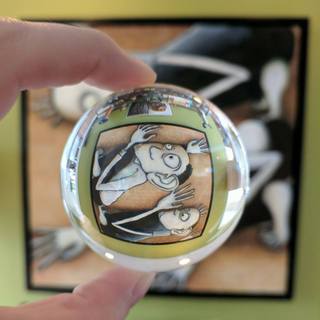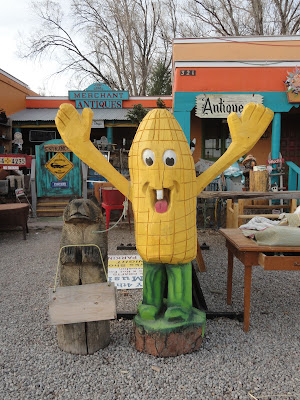photo by Sandra Dodd
Tuesday, December 28, 2021
Learning floods in
photo by Sandra Dodd
Saturday, October 30, 2021
Lighting up the darkness
SandraDodd.com/light
photo by Sarah Dickinson
Wednesday, October 20, 2021
Living well without boredom
From Wikipedia, about boredom:
There are three types of boredom, all of which involve problems of engagement of attention. These include times when we are prevented from engaging in some wanted activity, when we are forced to engage in some unwanted activity, or when we are simply unable, for no apparent reason, to maintain engagement in any activity or spectacle.If that list is to be accepted, then unschooling parents can avoid boredom by finding ways to help children engage in wanted activities, not pressing them to engage in unwanted activities, and provide options to any activity or spectacle. (I'm thinking having quiet toys, a book, a Gameboy, smart phone or iPad on hand.
Boredom and unschooling
photo by Sandra Dodd
Sunday, August 22, 2021
If nobody makes you...
Calvin and Hobbes online
art and concept by Bill Watterson; read more at the link above!
Sent by Sadie Brown; rescued by facebook memories.
Sadie had sent a photo of a page from a book at her house. I found a flatter, lighter version online. Bill Watterson's work is wonderful, and I hope any of you who don't know those characters will spend some time with them.
Monday, May 24, 2021
The benefit of untangling
Any parent with unresolved childhood trauma might want to gradually start untangling those memories for the benefit of your children, of yourself, of your partner, of your family, and in order for unschooling to work well.
Untangling
photo by Alex Polikowsky
Wednesday, May 19, 2021
Funding future learning
If your child wants a camera or art supplies, a musical instrument or skis or a better computer, don't see it as a toy, but as a tool and as an entrée into a community of people from whom they can learn more.
The Big Book of Unschooling, page 304 (263 of first edition)
photo by Chelsea Thurman
___
Friday, February 26, 2021
Respecting people
photo by Rosie Todd
__
Friday, November 27, 2020
Color and form
Look out your window. Look AT your window.
photo by Sandra Dodd
__
Monday, January 7, 2019
Ideas, pulled in

Joyce Fetteroll wrote:
Teaching is pouring knowledge over a child. Whether a child takes it in is not in the teacher's power. Which is why teachers punish and reward to make not taking in an idea less pleasant.
Learning is a child pulling in ideas. Those ideas are most full of life when those ideas connect to other ideas the child is fascinated by. It makes no difference if those ideas connect along a particular path. Which is why natural learning looks so chaotic and meandering compared to school.
It makes it hard to create an environment for a child to explore freely and pull in what fascinates them when someone is unschooling through a fog of TEACH.
photo by Amber Ivey
__
Monday, October 15, 2018
Sparkly thoughts and moods
Not seem. No pretending.
Not your house. Your thoughts, your interactions, your moods, your responses. Sparkling, like sparkling from one thought to another, connecting a picture with a song with a joke with a movie with a dog.
photo by Colleen Prieto
__
Sunday, September 9, 2018
Blending in
 |
Birds where I live, I can easily ignore.
People want to blend in, not to be seen as different. That's why sometimes unschoolers would like to be around other unschoolers, so they're not noticed so much. It's understandable.
Sometimes, if you have the energy, even though it might be more work, be willing to be noticeably exotic.
photo by Sandra Dodd, in Avebury
Wednesday, April 4, 2018
Continue to play

Play can be serious business. Playing is certainly the main way that very young children learn, until they go to school.
What if they don't go to school? What if the ages of five and six don't mark a life change, and the playing progresses along naturally?
Many people would have no idea how to answer that question. The idea that toddlers' play would naturally progress to other levels without interruption, without separation from families, and without professionals telling children when, where and how to play is foreign to most in our culture.
In one small corner, though, it's common knowledge. There are unschoolers whose children have not been to school and who have continued to play.
photo by Janine Davies
Thursday, January 11, 2018
Stop / Go

photo by Sandra Dodd
Monday, January 8, 2018
Highlight now

Customized, thoughtful choices
photo by Sandra Dodd
Wednesday, December 13, 2017
Mess with chess

Sink-Like-a-Stone Method: Instead of skimming the surface of a subject or interest, drop anchor there for a while. If someone is interested in chess, mess with chess. Not just the game, but the structure and history of tournaments. How do chess clocks work? What is the history of the names and shapes of the playing pieces? What other board games are also traditional and which are older than chess? If you're near a games shop or a fancy gift shop, wander by and look at different chess sets on display. It will be like a teeny chess museum. The interest will either increase or burn out—don't push it past the child's interest.
When someone understands the depth and breadth of one subject, he will know that any other subject has breadth and depth.
photo by Sandra Dodd
__
Tuesday, November 7, 2017
Only a child?
 |
photo by Sandra Dodd
__
Sunday, October 15, 2017
Discovering ways to help
photo by Sandra Dodd
__
Friday, September 22, 2017
New eyes
Don't teach. Just look at *everything* with new eyes....
Just live life amazed.—Joyce Fetteroll
SandraDodd.com/discovery
photo by Sandra Dodd
__
Saturday, August 26, 2017
Learning, peace and kindness

photo by Karen James, of a painting by Karen James
Wednesday, May 31, 2017
Deep and wide and whole
We recently took Fisher to a Blue Man Group concert—his first real "grown-up" show. Again, I could see all the connections being made—he watched how the instruments were being played, listened to how the sounds and the rhythms came together, jumped and bopped his head and let it all come together inside of him. His knowledge and awareness of music is growing deep and wide—it's not about "the basics," but about a gestalt, a holistic, systemic approach.
When you ask what component you are missing, this is what I keep coming up with. Are you looking in the wrong places? Are you looking for the basics when in fact, your son's knowledge and understanding is deep and wide and whole? What you see as "basic" are just a few Lego pieces that he'll fill in as he goes—but in looking for those, are you missing the incredibly large, whole creation that he's built up?
photo by Sandra Dodd
__











